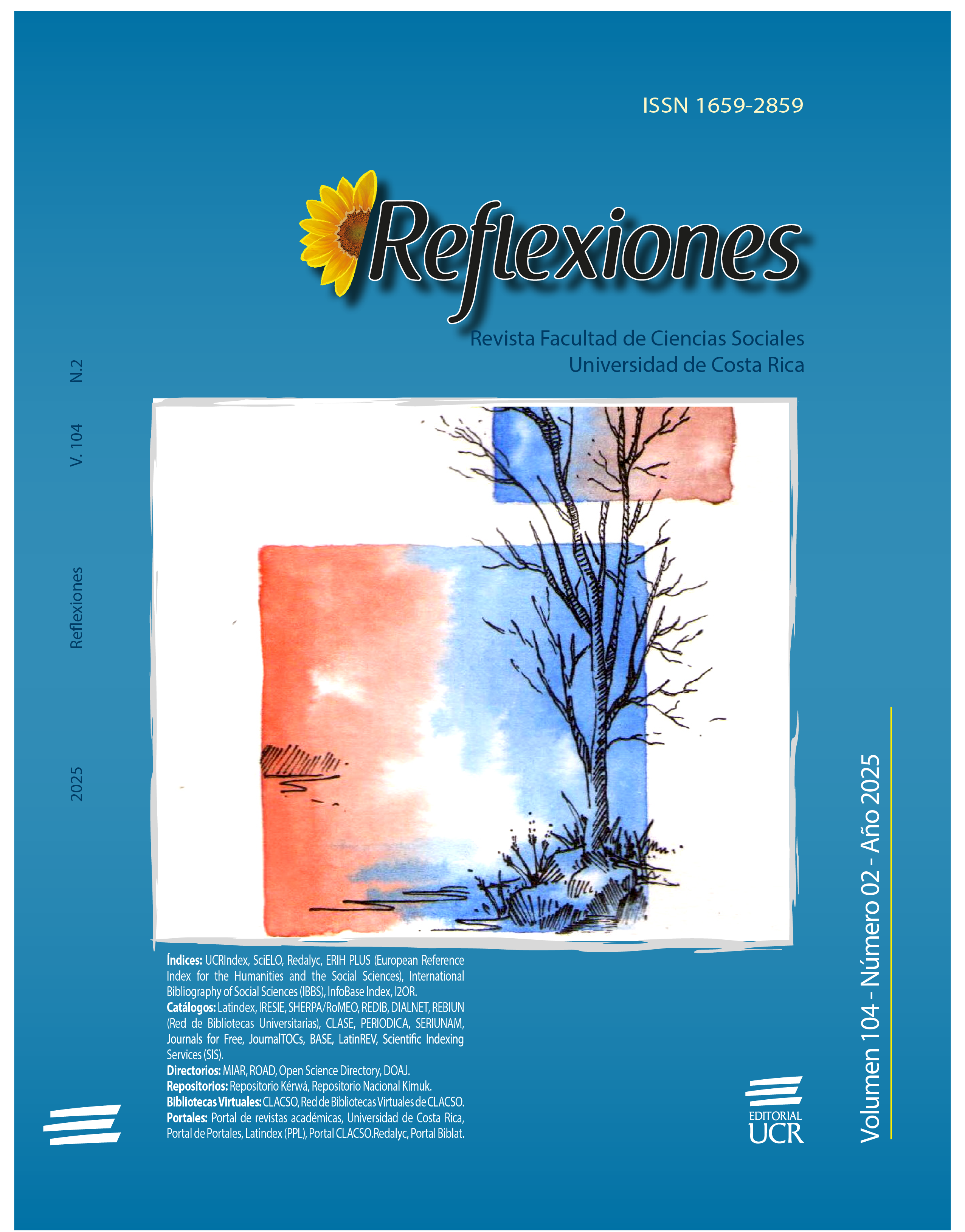Abstract
Introduction: This article analyzes the role of sex in the sphere of the secret (hidden) in both seasons of the TV series Big Little Lies, produced by David E. Kelley and directed by Jean-Marc Vallée and Andrea Arnold.
Objective: The text seeks to highlight the erotic-sexual topic, which although it is offered in a veiled form (since it is not the main topic of the series) reveals diverse aspects linked thereto, moving in the sphere of the occult and the secret, that is, what should be hidden or not talked about.
Method: Based on documentary research with a qualitative approach, seeking a possible interpretation of the series, the classical concepts of confession and the truth of sex, according to Michel Foucault, will be reviewed, as well as some ideas taken from Marcella Althaus-Reid's Indecent Theology, and some statements proposed by Gayle Rubin. The concept of party, according to M. Bajtin, and the cliché of the castrating mother as the origin of evil will also be briefly discussed.
Results: The findings reveal a particular vision of the sex-eroticism-secrecy trinomial, that moves between the undefined, the hidden, and, as the series points out, “the little big lies” on which the story develops.
[Continue reading in the article]
References
Althaus-Reid, Marcella. 2005. La Teología Indecente. Perversiones teológicas en sexo, género y política. Barcelona: Ediciones Bellaterra.
Bajtin, Mijail. 1990. La cultura popular en la Edad Media y el Renacimiento. El contexto de François Rabelais. Madrid: Alianza Editorial.
Bataille, Georges. 2008. La felicidad, el erotismo y la literatura. Buenos Aires: Adriana Hidalgo Editora.
Cambra-Badii, Irene., Paragis, Maria Paula., Mastandrea, Paula B.& Martínez, Delfina. 2019. Big Little Lies: una serie contemporánea sobre la representación de la subjetividad femenina y la violencia hacia la mujer. Comunicación y Medios, (39):14-25.
Casals, Gustavo. 2019. La decepción de la segunda temporada de Big Little Lies. Contextos Psi, 7, Uruguay, http://www.psicologos.org.uy/revistas/Contextos_Setiembre_2019.pdf
Dann, Sierra. 2021. “Big Little Lies:” Using Hegemonic Ideology to Challenge Hegemonic Ideology. Requisito para optar por el grado de Bachiller en Artes con mención en Comunicación, Wittenberg University, Ohio.
Destais, Alexandra. 2014. Éros au féminin. Paris : Klincksieck.
Foucault, Michel. 1976. Histoire de la sexualité I. La volonté de savoir. Paris: Gallimard.
Grimal, Pierre. 1997. Diccionario de mitología griega y romana. Barcelona: Paidós.
Lotman, Yuri. 1982. Estructura del texto artístico. Madrid: Istmo.
Mazur, Zbigniew. 2018. Regeneration Through Violence? The American Family in Ray Donovan and Big Little Lies. Annales Universitatis Mariae Curie-Sklolodowska, Lublin, Polonia, vol. XXXVI, 2, DOI: 10.17951/ff.2018.36.2.121-129
Millán G, María. 2021. La representación de las violencias patriarcales en la crítica cultural. El caso de Big Little Lies (2017). Trabajo de investigación de Final de Máster Departamento de Comunicación Universitat Pompeu Fabra,
https://repositori.upf.edu/bitstream/handle/10230/48052/Mill%C3%A1n_2020.pdf?sequence=1&isAllowed=y
Moreno Serrano, Laura Mercé. 2021. The discursive representation of domestic violence in Big Little Lies: A Feminist Critical Discourse Analysis of the Cycle of Violence, en: Gregori-Signes, C, Fuster-Márquez, M., y Maruenda-Bataller, S. (eds.). Discourse, dialogue and characterization in TV series, Granada: Editorial COMARES.
Pavis, Patrice. Diccionario del Teatro. Dramaturgia, estética, semiología. Barcelona: Paidós Comunicación.
Paz, Octavio. 1993. La llama doble. Barcelona: Seix Barral
Réti, Zsófia O. 2020. Telling the Untellable: Trauma and Sexuality in Big Little Lies. Hungarian Journal of English and American Studies, vol. 26, no. 1, https://ojs.lib.unideb.hu/hjeas/article/view/7389
Richard, David Evan. 2018. People in Glass Houses: Big Little Lies on the Small Screen, Adaptation, Vol. 11, 3, https://doi.org/10.1093/adaptation/apy007
Rubin, Gayle.2011. Deviations. A Gayle Rubin reader. Durham-London: Duke University Press.
_________.1984. “Reflexionando sobre el sexo: notas para una teoría radical del sexo”, Biblioteca Virtual de las Ciencias Sociales, http://xenero.webs.uvigo.es/profesorado/beatriz_suarez/rubin.pdf
Salsabila, Shasti, & Ariastuti, Fauziah Marti. 2019. An Examination of Masculinity as the Cause of Domestic Violence in Big Little Lies, Advances in Social Science, Education and Humanities Research, volume 453, Atlantis Press SARL, https://doi.org/10.2991/assehr.k.200729.011
Serie:
Arnold, Andrea. (2019). Big Little lies 2 [serie televisiva]. HBO.
Vallé, Jean Marc. (2017). Big little lies 1[serie televisiva]. HBO.
Fuentes en línea:
Big Little Lies. 2019 https://www.filmaffinity.com/es/film852180.html Fecha de ingreso: 15 marzo 2022
Big Little Lies (s.f.) Big Little Lies - Metacritic. Fecha de ingreso: 1 agosto 2024
Delgado, Jesús. 2018. “Crítica de Big Little Lies, la gran ganadora de los globos de oro”.https://www.hobbyconsolas.com/reviews/critica-big-little-lies-gran-ganadora-globos-oro-184190 Fecha de ingreso: 18 ene 2022
Fienberg, Daniel. 2019. Big Little Lies Season 2:TV Review, https://www.hollywoodreporter.com/tv/tv-reviews/big-little-lies-review-1214695/ Fecha de ingreso: 23 ago. 2022
Onieva, Álvaro. 2017. “Big Little Lies. Un excelente relato femenino”:https://www.fotogramas.es/series-tv-noticias/a18649638/big-little-lies-critica-miniserie-hbo-espana/ Fecha de ingreso: 23 ago. 2022

This work is licensed under a Creative Commons Attribution-NonCommercial-NoDerivatives 4.0 International License.
Copyright (c) 2024 Mónica Zúniga Rivera
